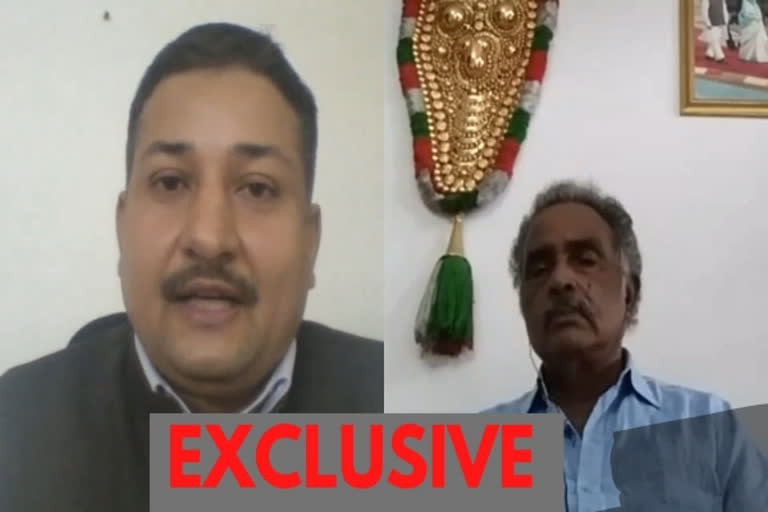Hyderabad:Supreme Court and Rajasthan High Court’s decision to allow rebel Congress MLAs to challenge the Speaker’s power to issue notice for disqualification causes concerns as the issue was already settled by a five-judge Constitutional Bench of the Supreme Court 28 years ago, says an expert on constitutional matters.
In an exclusive interaction with ETV Bharat, PDT Achary, former secretary-general of Lok Sabha, says in the present case, Rajasthan High Court and Supreme Court decided to hear the plea of rebel Congress MLAs challenging the power of the Speaker to issue notice to them after they refused to join a party meeting.
On July 15, Rajasthan assembly speaker CP Joshi issued notice to former deputy chief minister Sachin Pilot and 18 Congress MLAs after they defied the party’s instruction to join a party meeting in Jaipur that was called to enlist the support for the Ashok Gehlot government.
“Speaker issues notice as per the rules, these rules have been framed under the 10th schedule and approved by Parliament. Under this rule, the petitioner has to satisfy the reasonableness of ground and not the speaker,” PDT Achary said.
Achary says the Speaker’s power to issue notice to rebel legislatures has already been upheld by a five-judge Constitutional bench of the Supreme Court in Kihoto Hollohan case in 1992 where the top court upheld that judicial review can take place only after the Speaker’s decision and courts cannot intervene before that.
“The law was settled in 1992 that there cannot be a judicial intervention of the action by the speaker before he takes a final decision on merit,” Achary told ETV Bharat.
In Rajasthan, the High Court has ordered the status quo, which effectively stalled any action against the rebel Congress MLAs of Sachin Pilot camp by the Speaker for time being.
In yet another relief, the Rajasthan High Court also allowed Sachin Pilot’s plea to allow the Union government to become a party in the case as the matter deals with important Constitutional provisions pertaining to the Anti-Defection Law of 1985.
“It means you can challenge the issue of notice by the speaker, challenge the constitutionality of the notice itself,” Achary said while commenting on the High Court’s decision.
Disqualification under the anti-defection law
Achary says under the law, a notice for disqualification can be issued on two grounds. First, if a legislator has defied the party whip in the house. The second ground is if a member has voluntarily given up the membership of the party.
“The ground of voluntarily giving up the membership of the party has not been defined in the law but the Supreme Court has explained it in many cases,” said the former secretary general of the Lok Sabha.
Also read:Rajasthan turmoil: CM Gehlot likely to meet Governor at 2 pm today
“In one case, the SC said that a member going to the governor with some opposition members and requesting the governor to dismiss his own government is a proof enough that he has voluntarily given his membership of the party,” Achari explained adding that just one action on the part of the member was treated as enough evidence.
How Speaker issues notice for disqualification
